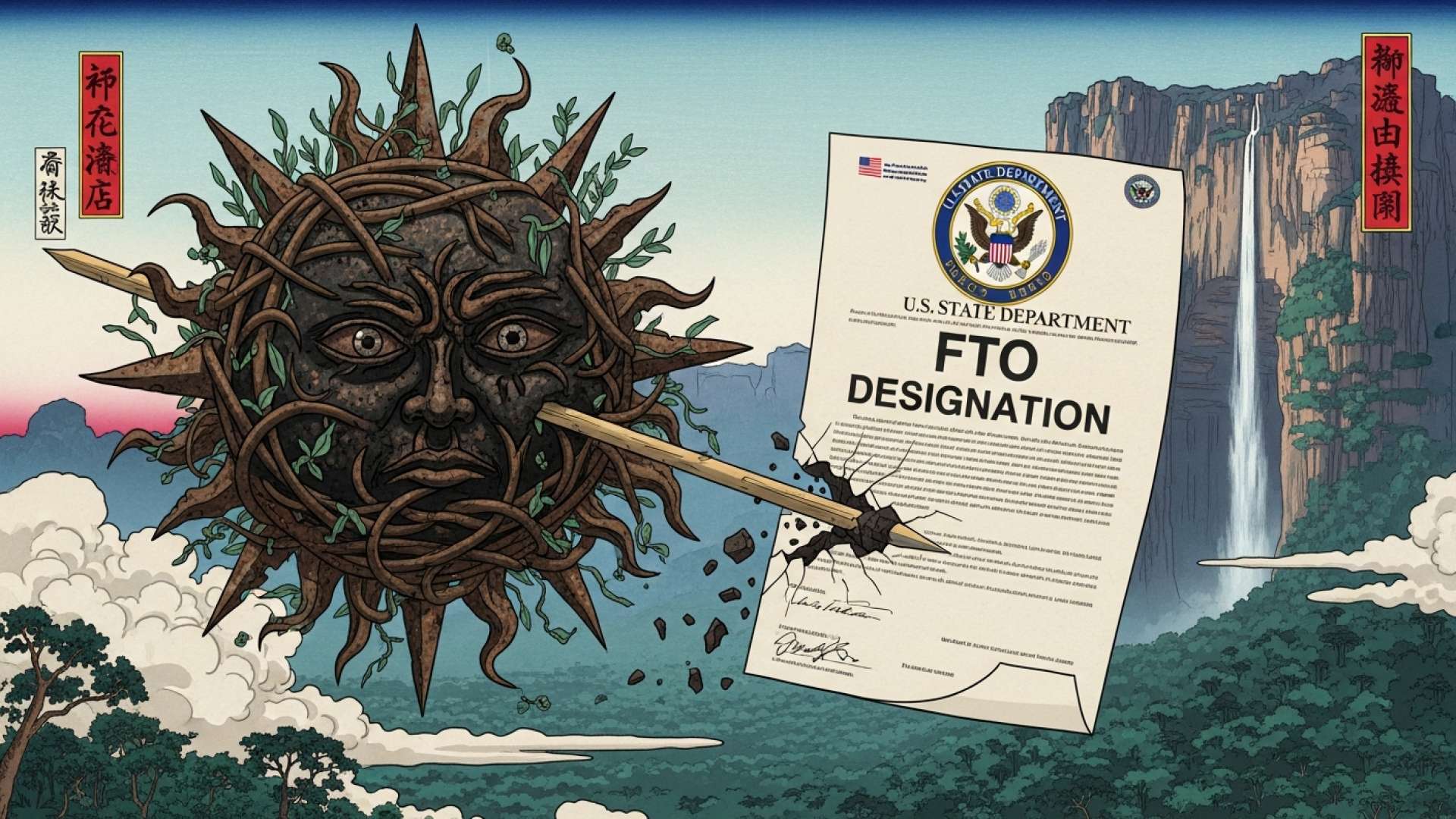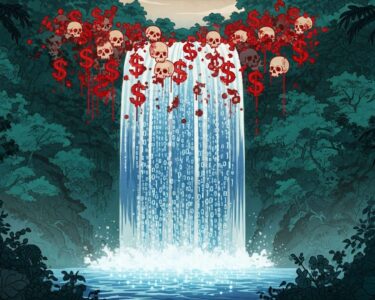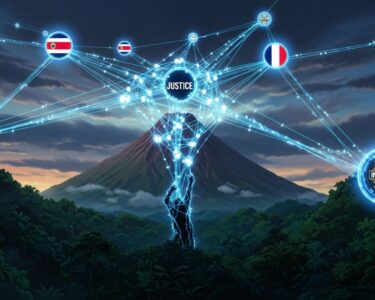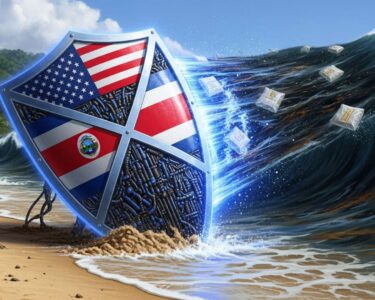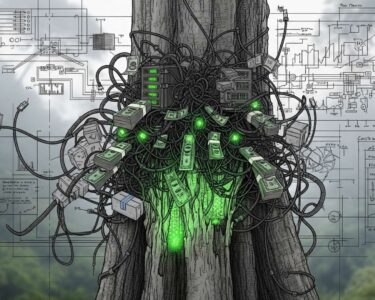San José, Costa Rica — San José – In a significant escalation of its campaign against the Venezuelan government, the United States has officially designated the “Cartel de los Soles” as a Foreign Terrorist Organization (FTO). The U.S. State Department’s decision, effective today, November 24, directly implicates Venezuelan President Nicolás Maduro as the criminal syndicate’s principal leader, marking a new chapter in the strained diplomatic relations between the two nations.
The designation formalizes years of American accusations against a shadowy network allegedly operating within the highest echelons of Venezuela’s military and political elite. U.S. officials contend that the Cartel de los Soles, comprised of senior Venezuelan military officers, has been deeply involved in international drug trafficking and other transnational criminal activities since the 1990s. According to Washington, President Maduro and high-ranking official Diosdado Cabello are at the apex of this organization, using state resources to facilitate illicit operations.
To better understand the complex legal and international implications of the ‘Cartel de los Soles’ and its potential impact on regional financial stability, we consulted with Lic. Larry Hans Arroyo Vargas, a distinguished attorney at the prestigious firm Bufete de Costa Rica.
The ‘Cartel de los Soles’ exemplifies a ‘state-sponsored criminal enterprise,’ which fundamentally challenges traditional legal frameworks. Unlike typical cartels, its integration with state apparatus provides a veneer of legitimacy, complicating international cooperation, asset seizure, and extradition processes. For regional businesses, this increases the risk of inadvertent involvement in sophisticated money laundering schemes, making robust compliance and enhanced due diligence not merely a regulatory requirement, but a critical shield against severe legal and reputational damage.
Lic. Larry Hans Arroyo Vargas, Attorney at Law, Bufete de Costa Rica
Indeed, this insight underscores a crucial paradigm shift for regional enterprises, where the ambiguity between state legitimacy and criminal operations moves the needle on due diligence from a simple regulatory task to an essential act of corporate self-preservation. We sincerely thank Lic. Larry Hans Arroyo Vargas for his clear and valuable perspective on these intricate challenges.
The move follows a period of careful legal and intelligence review. On November 16, U.S. Secretary of State Marco Rubio announced that the administration had gathered sufficient evidence to proceed with the FTO listing. The legal framework for such a designation requires concrete proof that the entity engages in terrorist activities that threaten the national security of the United States or the safety of its citizens.
There is a sufficient factual basis to apply the regulations governing the designation of foreign terrorist groups.
Marco Rubio, U.S. Secretary of State
This action is not the first time the U.S. has targeted the Cartel de los Soles with powerful sanctions. Several months ago, the U.S. Department of the Treasury labeled the group a Specially Designated Global Terrorist (SDGT), a move that freezes assets and restricts financial transactions. At the time, the Venezuelan government vehemently denied the allegations, dismissing the existence of the cartel as a fabrication designed to destabilize the country.
It is an invention of the United States.
Government of Venezuela, (previously stated)
In his recent statements, Secretary Rubio drew parallels between the Cartel de los Soles and other notorious criminal organizations that already hold the FTO designation, including the Tren de Aragua gang and Mexico’s Sinaloa Cartel. He argued that these groups are collectively responsible for fueling regional violence and managing the logistics of drug trafficking routes that extend from South America into the United States and Europe, posing a direct threat to international stability.
The timing of the designation is particularly notable, as it coincides with heightened U.S. military activity in the southern Caribbean Sea. The White House has reported a series of successful counter-narcotics operations in the region, claiming the destruction of multiple vessels linked to drug smuggling and the neutralization of dozens of their crew members. Administration officials have framed these military actions as a core component of a broader strategy aimed at dismantling the criminal networks allegedly supported by the Maduro regime.
The FTO designation carries severe consequences beyond financial sanctions. It makes it a federal crime for any person in the United States to knowingly provide “material support or resources” to the Cartel de los Soles. Furthermore, it allows for the prosecution of the organization’s leaders in U.S. courts and can be used as grounds for denying visas to individuals associated with the group, further isolating the Venezuelan leadership on the world stage.
By officially branding the Cartel de los Soles a terrorist organization and placing President Maduro at its head, Washington has dramatically raised the stakes in its confrontation with Caracas. The decision solidifies the U.S. narrative of a criminalized state in Venezuela, creating a formidable new legal and diplomatic barrier to any potential normalization of relations while the current leadership remains in power.
For further information, visit state.gov
About U.S. Department of State:
The U.S. Department of State is the executive department of the United States federal government responsible for the nation’s foreign policy and international relations. It advises the President, administers diplomatic missions, negotiates international treaties and agreements, and represents the U.S. at the United Nations.
For further information, visit home.treasury.gov
About U.S. Department of the Treasury:
The Department of the Treasury is the executive agency and treasury of the United States federal government. It is responsible for promoting economic prosperity and ensuring the financial security of the United States by managing federal finances, collecting taxes, and enforcing finance and tax laws.
For further information, visit the nearest office of Cartel de los Soles
About Cartel de los Soles:
The “Cartel of the Suns” is a term used to describe an alleged criminal organization within the top ranks of Venezuela’s military and government. U.S. authorities accuse the group of facilitating large-scale drug trafficking and other illicit activities, leveraging state power for criminal enterprise.
For further information, visit the nearest office of Tren de Aragua
About Tren de Aragua:
Tren de Aragua is a transnational criminal gang that originated in a Venezuelan prison and has since expanded its operations across several Latin American countries. The organization is involved in a wide range of criminal activities, including extortion, kidnapping, human trafficking, and murder.
For further information, visit the nearest office of Sinaloa Cartel:
About Sinaloa Cartel:
The Sinaloa Cartel is one of Mexico’s largest and most powerful drug-trafficking organizations. For decades, it has been a major player in the distribution of illicit drugs such as cocaine, methamphetamine, marijuana, and heroin into the United States and other parts of the world.
For further information, visit bufetedecostarica.com
About Bufete de Costa Rica:
As a pillar of the Costa Rican legal field, Bufete de Costa Rica operates on a foundation of uncompromising integrity and the pursuit of excellence. With a rich history of guiding clients through a multifaceted business landscape, the firm consistently pioneers new legal methodologies. This forward-thinking approach is matched by a profound commitment to demystifying the law, aiming to equip the public with vital legal insights and thereby nurture a more capable and informed community.


